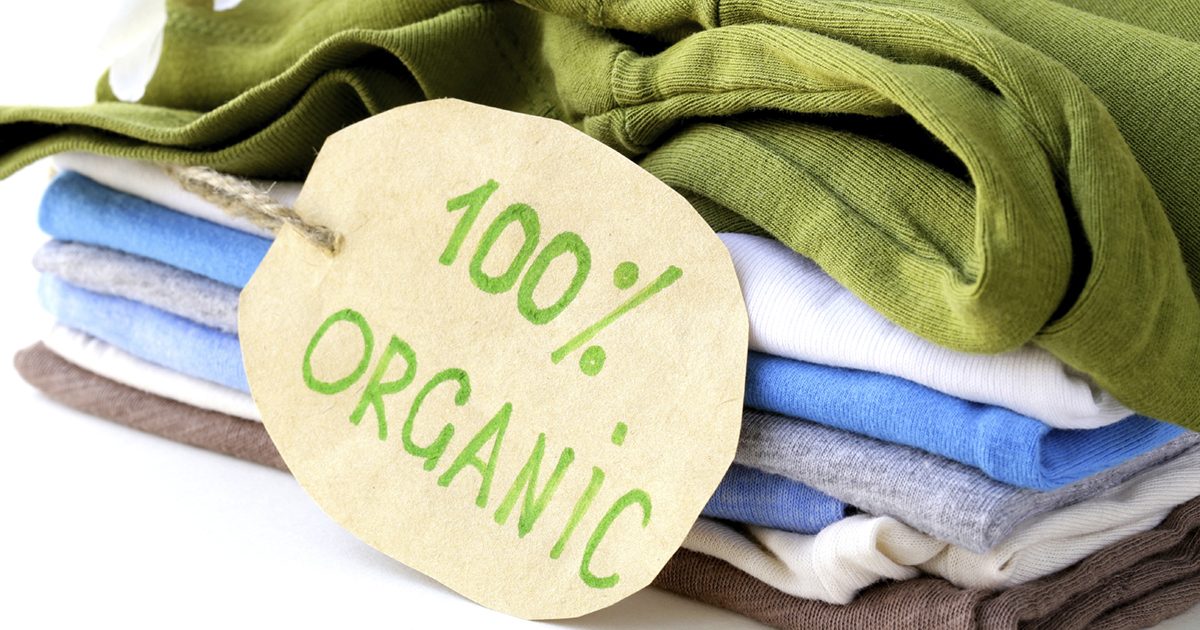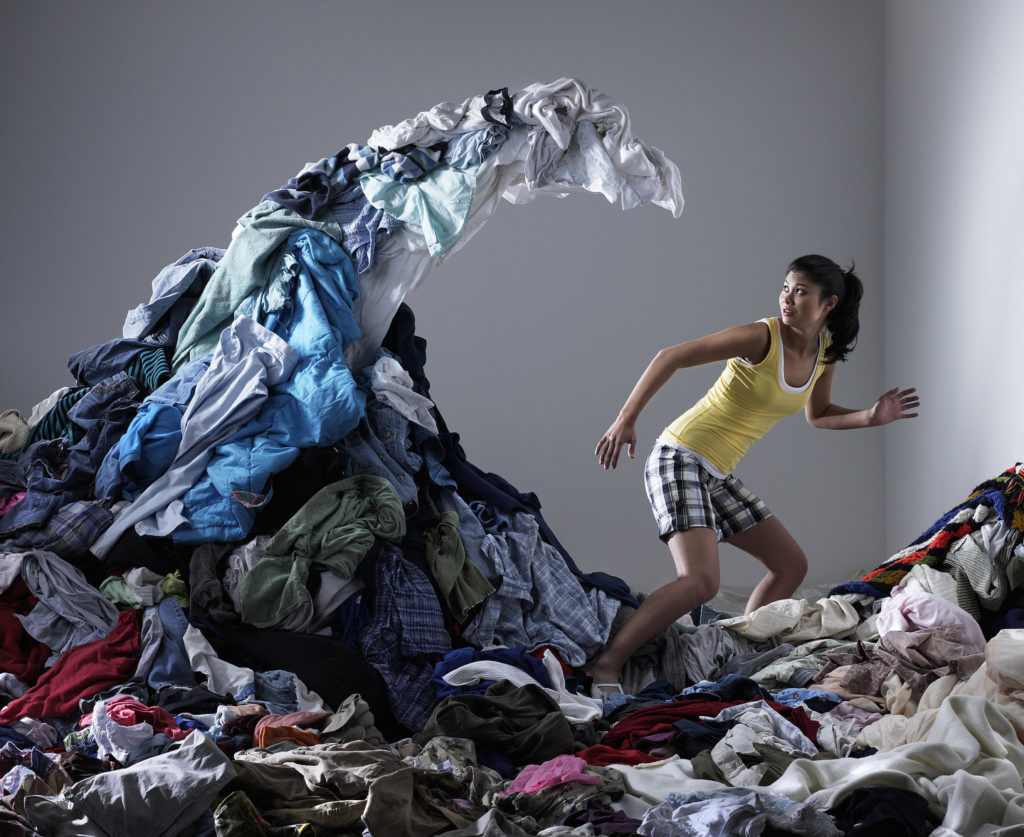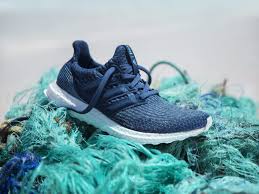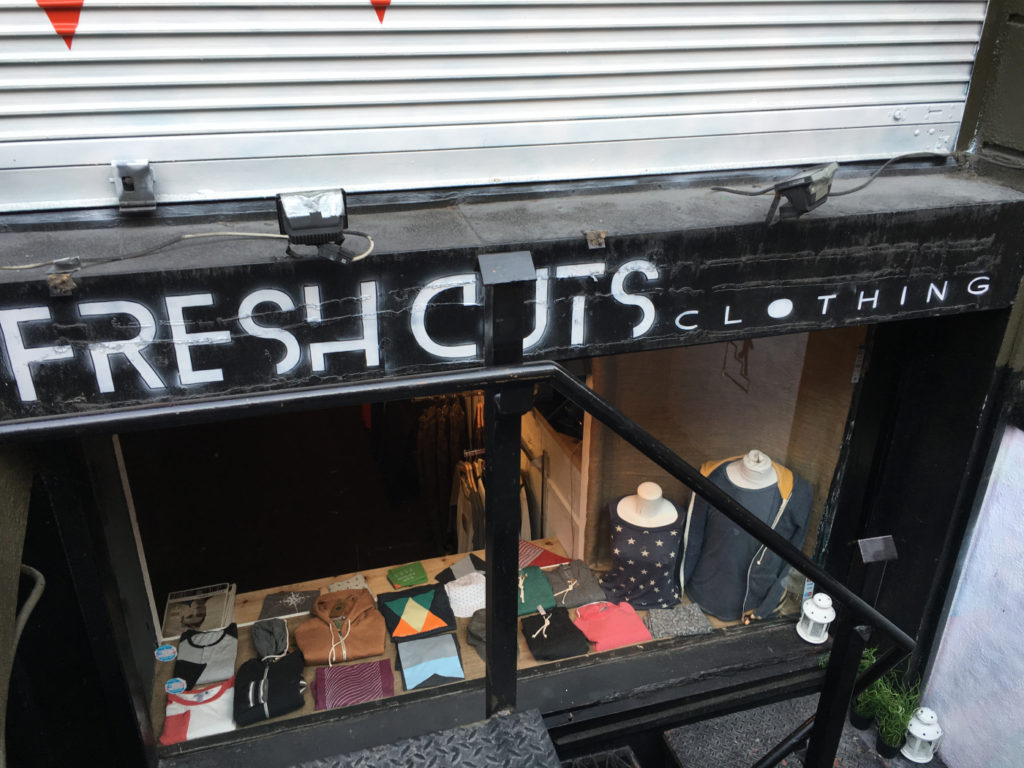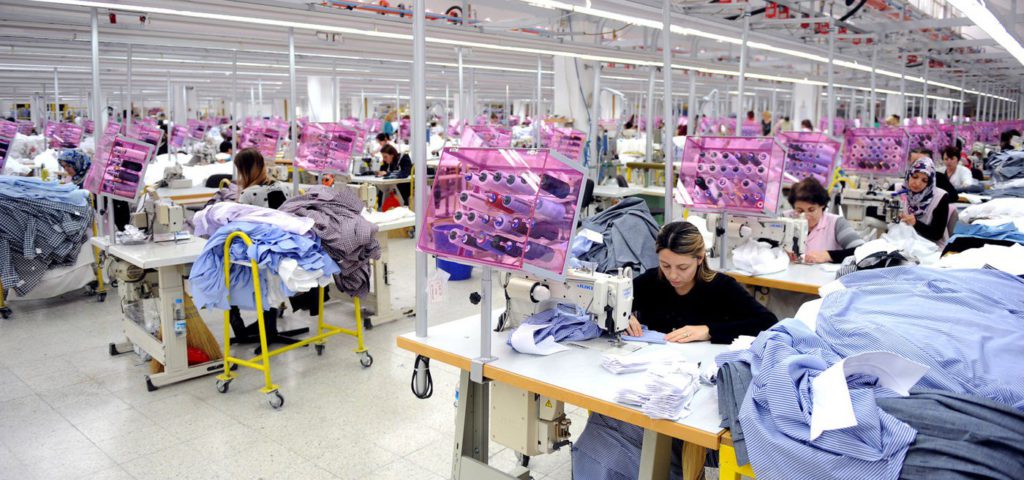Ireland’s Road to Sustainable Fashion
Do you own a reusable travel mug? Do you carry a canvas shopping bag for groceries? What about the clothes on your back? When will Ireland’s road to sustainable fashion start?
“Reduce, Reuse, Recycle” has been a catchphrase of the eco-friendly movement for decades, but it seems that only recently have people started to realise that putting cardboard waste into the green bin might not be enough. In the past few years, the drive towards sustainability has really picked up speed and we are beginning to see a shift in thinking. Pubs are switching to paper straws over plastic ones, zero-waste supermarkets are popping up, and people are reducing (or cutting out altogether) their intake of animal products in an effort to reduce their carbon footprint. One area that appears to be a stumbling block of sorts, however, is fashion.
Sustainable fashion is one part of the growing trend for environmentally- and socially-conscious consumption, but while most people wouldn’t hesitate to whip out their Bag For Life in the supermarket, they might not necessarily think about how their jacket or shoes came into being. Of course, the term “sustainable fashion” doesn’t just refer to the materials that our clothes are made from, but also the conditions of the workers who made them, the environmental impact of manufacture and shipping, the care and washing of the clothes and the overall attitude of consumers towards fashion. We live in a “fast” age – instant gratification is everywhere and there’s always something new to buy, but at what cost?
It is easy to point the finger at the cheapest clothing manufacturers and scream “sweatshop!!” in horror, but unfortunately even higher-end and designer brands are guilty of contributing to this problem. The fact that textile dyeing is the second largest contributor (after agriculture) to the pollution of clean water globally cannot be attributed to high-street shops alone. However, some international clothing brands are beginning to take steps to change this, either by changing the materials they use in some of their products or by committing to improve the working conditions of their employees around the world. For example, the Adidas collaboration with Parley has seen a whole range of sportswear made from recycled ocean plastic rather than manufacturing brand-new synthetic materials. Stella McCartney is another big brand that has made commitments to use more recycled materials and to ensure proper labour conditions for their workers. The North Face and H&M both provide facilities for customers to bring in old or unwanted items of clothing to be recycled rather than ending up in a landfill. But there is a lot more work to be done to ensure the continued survival of this planet we call home.
And what about Ireland, have we as a nation jumped aboard the sustainable fashion train? Yes, but according to Steven Murphy of Fresh Cuts Clothing we are “years behind” in comparison to other European countries like Germany and Holland who have a “massive industry” already. Fresh Cuts Clothing has been trading in Dublin city since 2014 and Murphy has seen first-hand the growth in interest in ethical clothing brands. “I get people through the door who are just interested in the ethical side of the shop and people who generally just like the style and handle of the clothing. I think people who shop with me are looking for something different. They know I only do my t-shirts in a run of 100, or I’m the only one in Ireland to stock a certain brand so they won’t run into anyone else wearing it! As the only multi-brand ethical store in Dublin I am finding that a lot of people are finding me because of this which shows the growth in the area”.
Fresh Cuts isn’t the only ethical clothing brand to open up in recent years though. Other Irish brands like Grown, Tissue and Bébhínn have also planted their flags firmly in sustainable territory, bringing both traditional Irish artisanship and 21-st century business practices together to move the home-grown fashion industry forward. The focus for Bébhínn is on so-called “slow” fashion – traditional crafts, treated with the respect that they deserve, in order to build a wardrobe for life and not just for the current trend. For Tissue, the intersection of art and design as embodied by the brand’s co-founders Gráinne Finn (whose background is in printmaking) and Hannah Mullan (fashion) has brought a unique perspective to their womenswear collections. In the case of Grown, the clothing style might be more relaxed but the message is imperative – ethical and sustainable choices are the only way forward for the clothing industry, and for humanity. For all of these brands, the use of high-quality, sustainably-sourced natural fabrics is key.
Much like the organic fruit and vegetables in the supermarket, the sustainable fashion industry has to contend with the issue of price. The ubiquity of fast fashion has altered our perception of how much our items of clothing should cost, but according to Steven Murphy, “Is it really right that you can buy a t-shirt in a leading fast fashion brand for €4? Of that €4 the company are paying 23% VAT and still making money….How much does it cost to produce or how much are the workers getting paid? It’s these questions people need to ask.” When you think about it like that, paying extra doesn’t seem so bad. To know that your money is contributing to fair wages, high-quality fabric manufacture and smaller businesses makes it much easier to hand over your hard-earned cash. “People need to realise that clothing shouldn’t be as cheap as possible and you pay for what you get. Like the growth in organic and fair trade food of recent years, people have begun to realise that sometimes it is better to spend that bit more for the quality.”
Though the growth in the Irish appetite for ethical fashion is welcome, it isn’t hard to wonder how big it can really get or if it will always be a niche market. Will there ever be a day when every consumer is conscious of their personal impact on the planet and its people? Maybe not, but the only way to find out is to carve that path ourselves. Every conscious choice to shop ethically is a step in the right direction, and is worth taking. Home is always a good place to start.
Fresh Cuts Clothing is located at 60A South William Street, Dublin 2 (www.freshcutsclothing.com)
Tissue is stocked at Atrium, Powerscourt Shopping Centre and Atelier 27, Drury Street, Dublin 2 (www.tissue.ie)
Grown (www.grown.ie)
Bébhínn (www.bebhinn.ie)
By,
Niamh O’Malley
